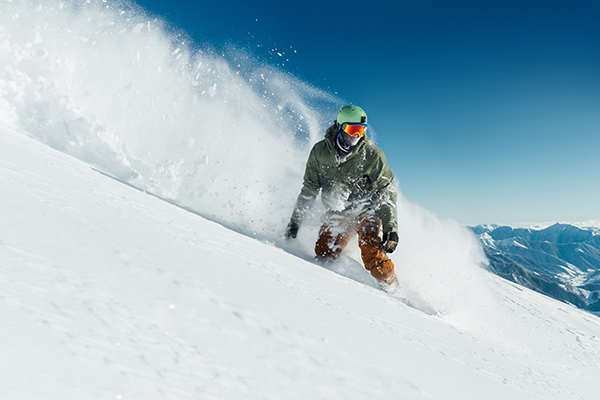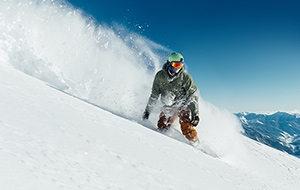
As the temperature drops and snow starts falling, avid winter sports enthusiasts get geared up for an exciting new season. With the excitement comes the possibility of injuries. Sports like skiing and snowboarding, ice hockey, and ice skating have the highest rate of injuries. The good news is that many of those injuries can be prevented by taking precautions.
Common winter sports injuries to avoid:
Sprains, Strains & Tears: Anytime a sport takes place on ice or snow, the likelihood of a knee, ankle, or wrist sprain or strain increases. Skiers and snowboarders often fall, and land on hands, wrists, and shoulders. Knee ligament injuries are also quite common, resulting from various twists and turns. Skier's thumb is a common injury that results in a sprained or dislocated thumb.
Dislocations & Fractures: Skiers and skaters are at a higher risk of shoulder dislocations and bone fractures due to falls on hard surfaces such as ice and compact snow.
Head Injuries: Concussions are a pretty common injury seen in winter sports due to the environment of snow and ice. Slips and falls, and taking risks, are responsible for most head injuries. Athletes should always wear a helmet that fits securely. Studies show that head injuries that occur while wearing a helmet are much less severe.
Spinal Injuries: Spinal injuries are quite common in sports that involve speed like skating, skiing, and snowboarding. Pair speed with a fall and you’ve got a recipe for a back or neck injury. Wear protective gear and pay close attention to your surroundings.
While all sports injuries can’t be prevented, there are several strategies that can help you avoid an injury this winter.
Warm-Up: This is essential for all sports. Many skiers and snowboarders skip the warm-up altogether and just hit the slopes with cold muscles. Cold muscles, in cold temperatures, are much more prone to injury. Ice hockey and ice skating both take place on the ice, therefore the temperatures are kept low as well. It’s vital to warm up muscles and promote proper blood flow to promote safety and avoid injury.
Wear Appropriate Gear: Winter sports require proper gear in order to keep you safe. Skiers and snowboarders should wear proper-fitting boots, skis/snowboards, and warm outerwear such as ski pants, coats, gloves, and headgear. Ski goggles are necessary to protect your eyes, improve visibility, and reduce glare. You may have to spend the extra money to purchase a pair that fits you well and provides great visibility. Hockey players and ice skaters should invest in quality skates. Quality skates provide the skater with proper ankle stability, which is crucial to healthy feet, ankles, and knees. Take the time to lace your skates appropriately, so they are snug but not too tight.
Stay in Good Physical Shape: Many people who only participate in winter sports let their physical stamina and strength go by the wayside. Stay active and keep up your core strength especially. You’ll be thankful as you approach the new season with strength and endurance.
Take Regular Breaks: Many injuries take place when athletes are fatigued and push themselves too hard. It’s important to listen to your body and rest when you need to. If you are sore or tired, take the day off and pick back up when you feel recovered.
Maintain a Healthy Diet: A healthy diet is crucial for your bone and muscle health. Consume a diet full of fruits, vegetables, and lean meats. Drink plenty of water and avoid excess sugar and processed foods.
This winter, take precautions so you don’t get sidelined by an injury. If you suffer from a minor or severe injury, the New Jersey Orthopaedic Institute (NJOI) is here to help you get back on the slopes or ice.
AUTHOR: Vincent K. McInerney, MD, is Board Certified by the American Board of Orthopaedic Surgery and a Fellow of the American Academy of Orthopaedic Surgeons (AAOS). He is currently the longest standing committee chairman of the Medical Society of New Jersey's (MSNJ) Committee on Medical Aspects of Sports. He has served as team physician and medical coordinator for the United States Olympic Team Handball Federation, Colorado Springs, Colorado. Dr. McInerney has received the Physician of the Year Award for the Eastern Athletic Trainers Association, Physician of the Year for the Passaic County Medical Society, Educator of the Year Award at Seton Hall University, an active member of the Harvard Medical Alumni Association.





